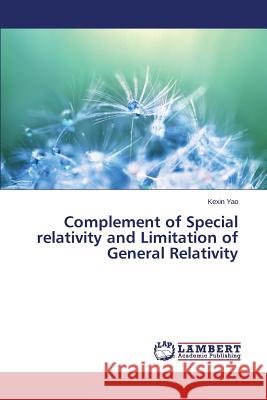Complement of Special relativity and Limitation of General Relativity » książka
Complement of Special relativity and Limitation of General Relativity
ISBN-13: 9783659584121 / Angielski / Miękka / 2015 / 76 str.
The special relativity needs to be supplemented due to its defects and deficiencies this book first introduces the axiom of invariant equilibrium of force, a fact that has been widely recognized, derives a transformation formula of force for the special relativity from the above axiom, and verifies the transformation formula of force with deflection results of charged particle in magnetic field; in addition, proposes new concept of relative time dilation and absolute time dilation based on experimental results by J. C. Hafele and R. E. Keating, scientifically works out twin paradox and concludes that people are unable to travel in time. As for the general relativity, based on conclusion of the axiom of invariant equilibrium of force, different from inertia mass, the gravitational mass of an object is a constant irrelevant to kinematic velocity of the object. Only the object that moves at low velocity, such as the Earth, has inertia mass approximately equal to gravitational mass. The inference of the general relativity thus is true. This book comes up with many new ideas and concepts with simple and understandable analysis and deduction, which is believed to be inspired to readers."
The special relativity needs to be supplemented due to its defects and deficiencies:this book first introduces the axiom of invariant equilibrium of force, a fact that has been widely recognized, derives a transformation formula of force for the special relativity from the above axiom, and verifies the transformation formula of force with deflection results of charged particle in magnetic field; in addition, proposes new concept of relative time dilation and absolute time dilation based on experimental results by J. C. Hafele and R. E. Keating, scientifically works out twin paradox and concludes that people are unable to travel in time. As for the general relativity, based on conclusion of the axiom of invariant equilibrium of force, different from inertia mass, the gravitational mass of an object is a constant irrelevant to kinematic velocity of the object. Only the object that moves at low velocity, such as the Earth, has inertia mass approximately equal to gravitational mass. The inference of the general relativity thus is true. This book comes up with many new ideas and concepts with simple and understandable analysis and deduction, which is believed to be inspired to readers.











